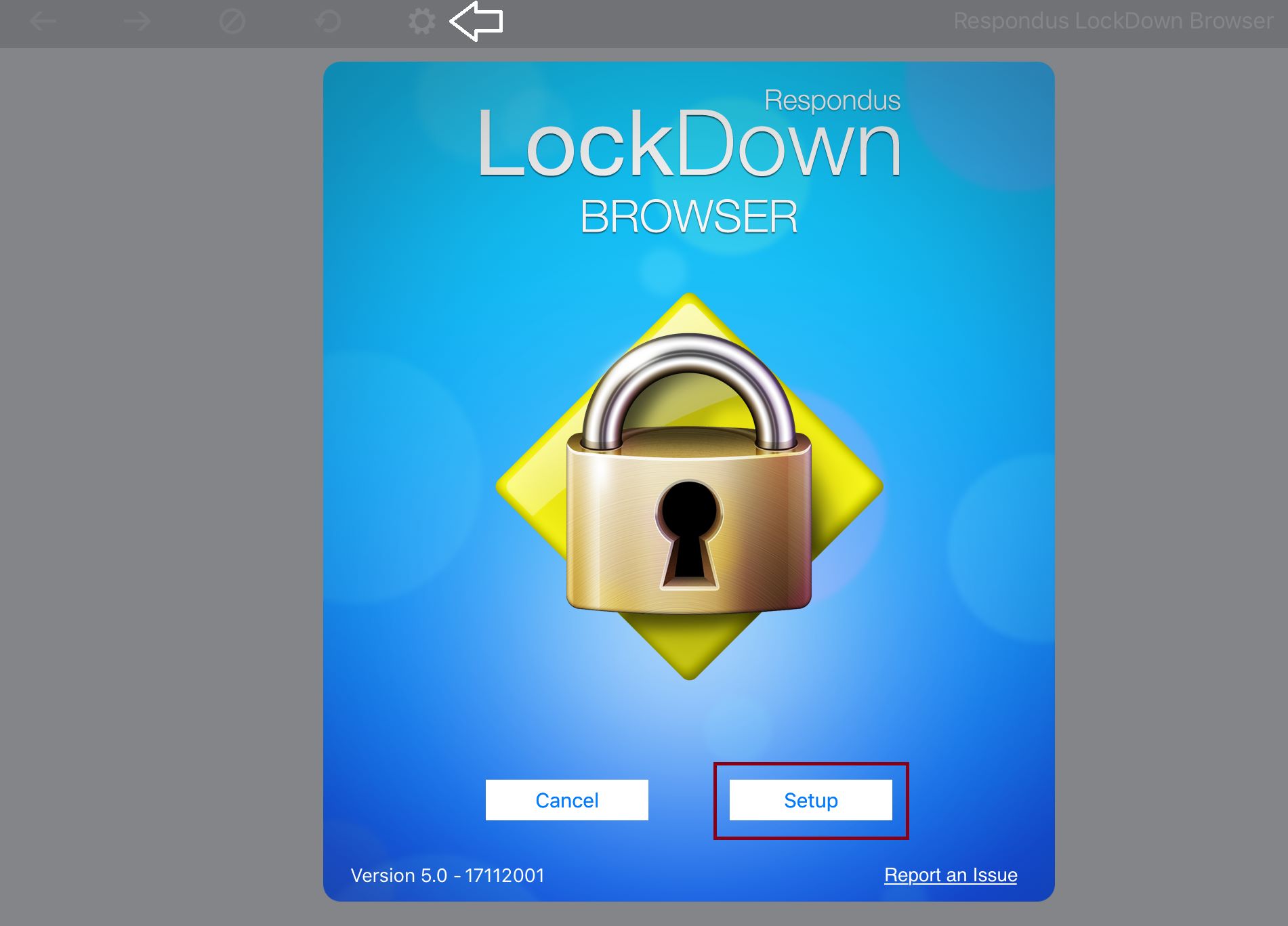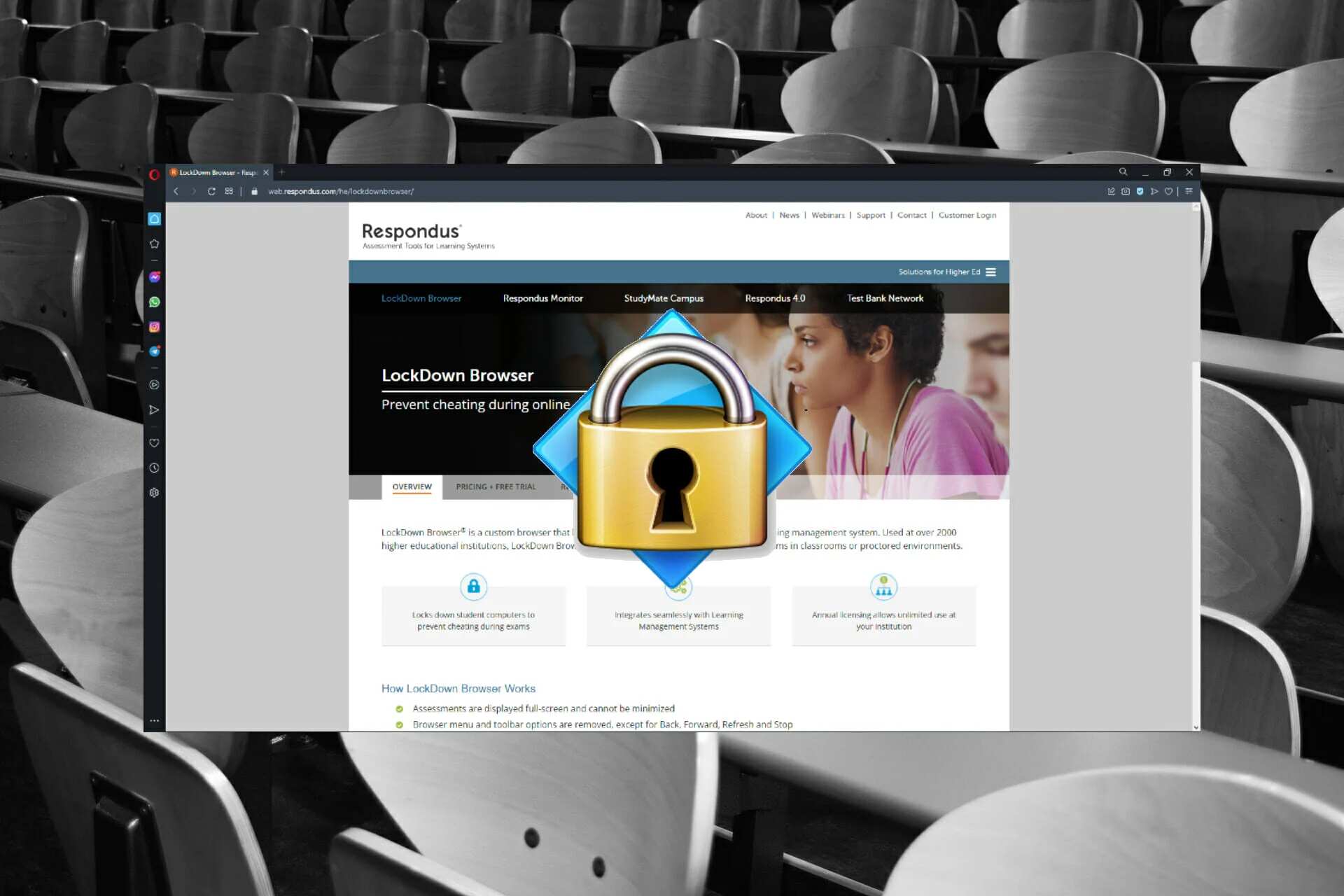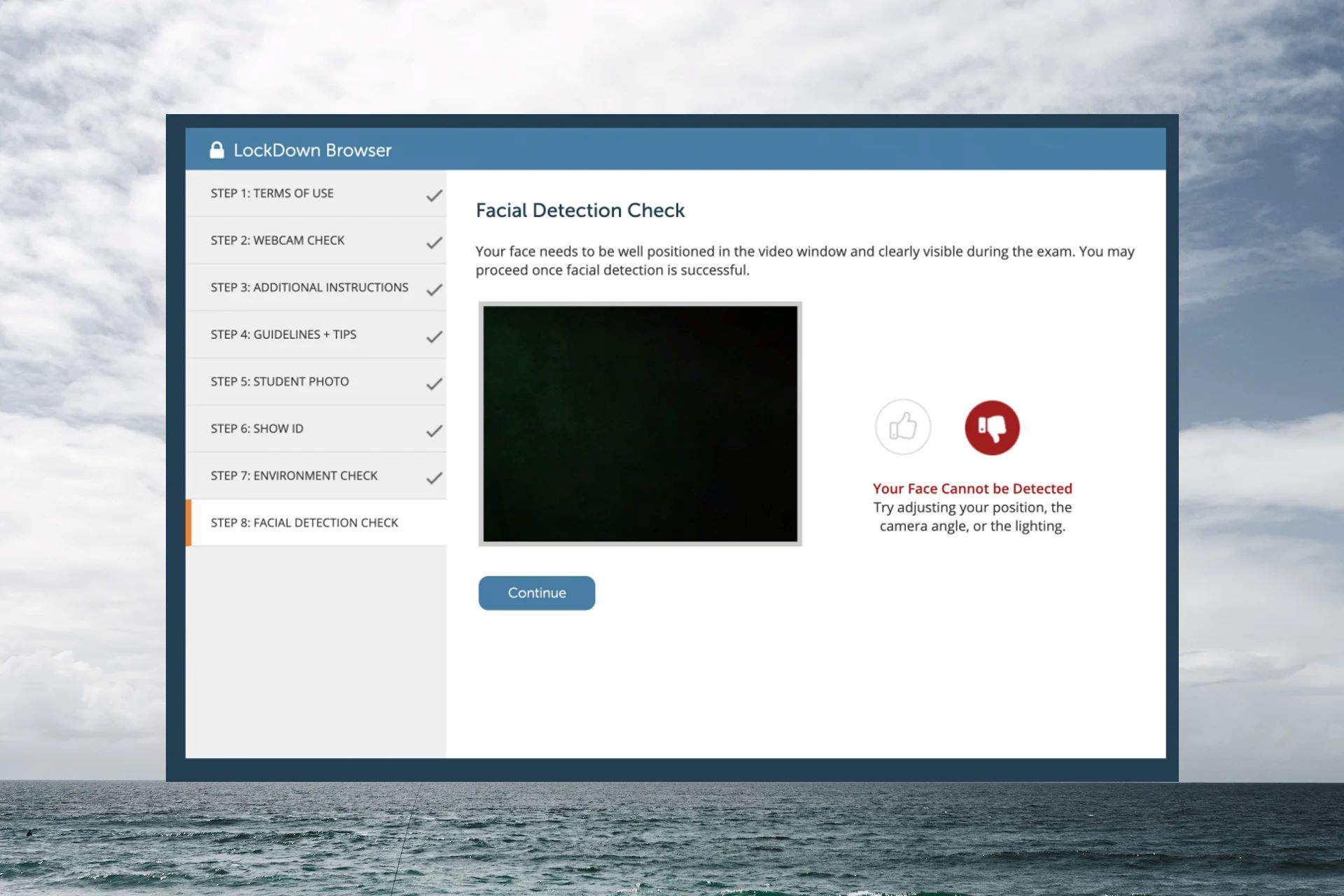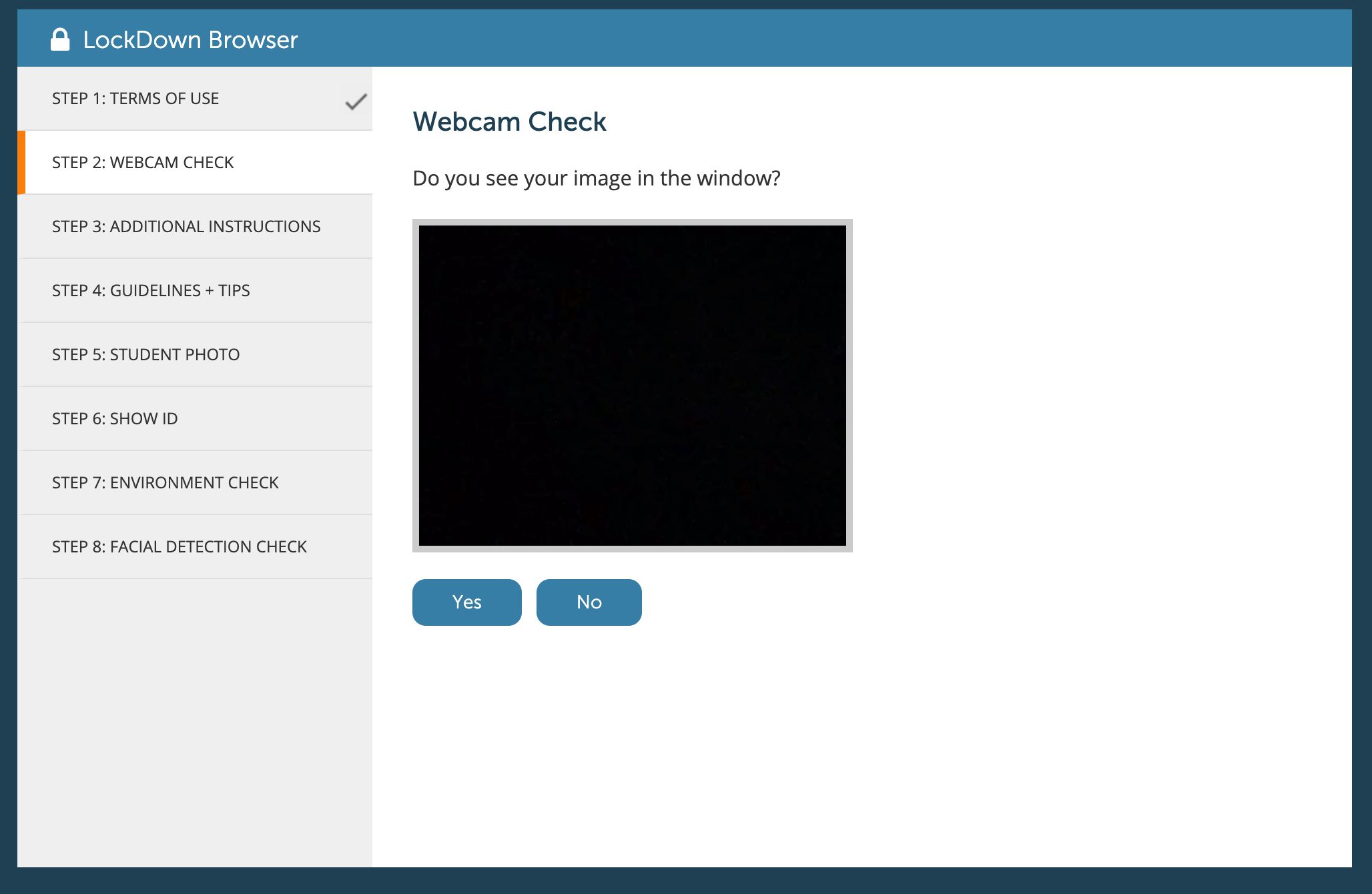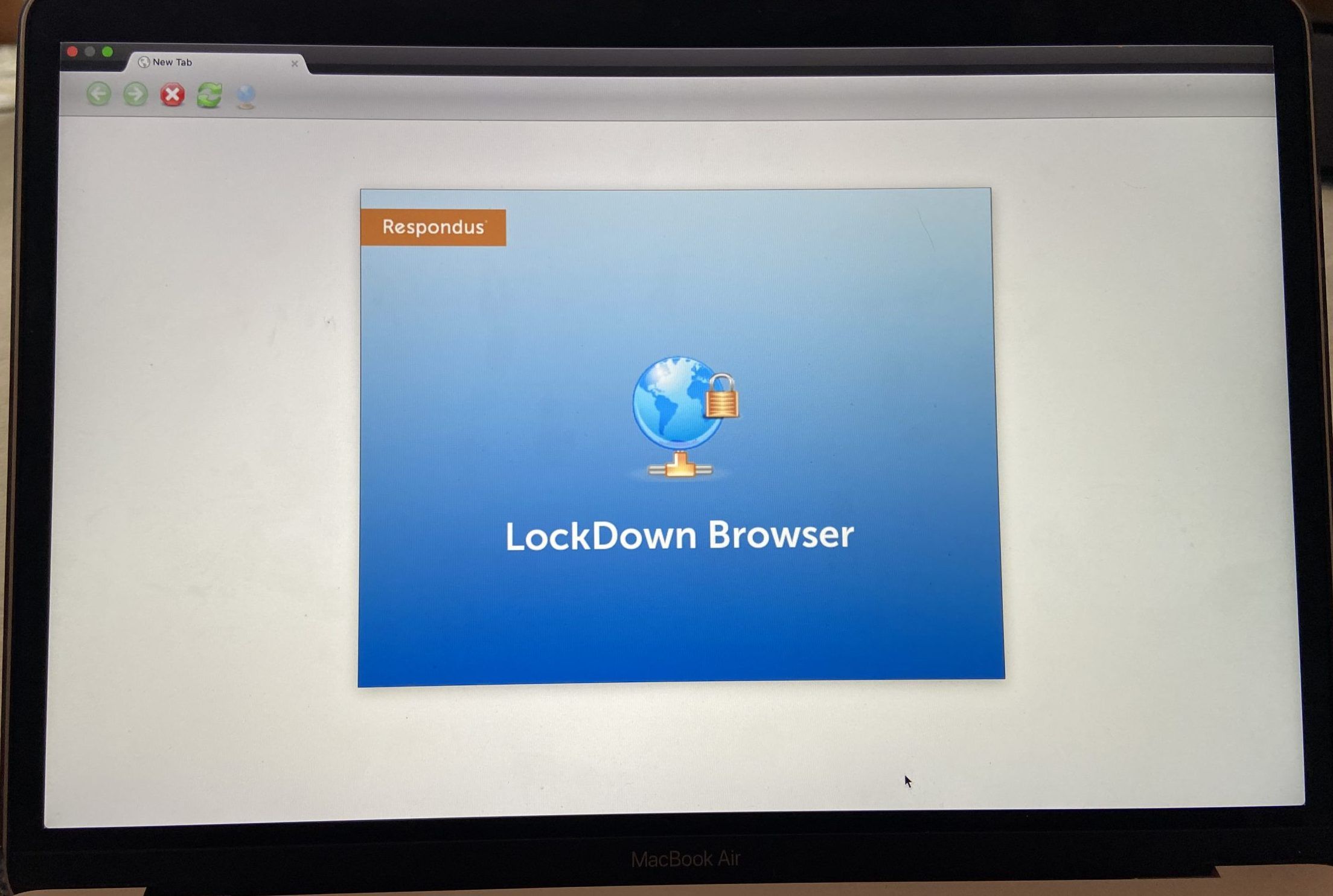Introduction
Respondus Lockdown Browser is a popular secure browser used by educational institutions to prevent students from cheating during online exams. It is specifically designed to restrict access to certain applications, websites, and functionalities on the testing device, ensuring a fair and controlled testing environment. While the intention behind using Respondus Lockdown Browser is to maintain academic integrity, some students may find it frustrating or inconvenient.
In this article, we will explore the concept of Respondus Lockdown Browser, its purpose, and the reasons why some students may want to find ways to get around it. We will also discuss the inner workings of this security tool and delve into various methods that students might employ to bypass its restrictions. It is important to note that attempting to cheat or circumvent online exam security measures is against academic honesty policies and can result in severe consequences, including academic penalties.
However, it is equally important to understand the motivations behind students wanting to bypass Respondus Lockdown Browser. Often, these reasons stem from technical difficulties, interruptions in internet connectivity, or a perceived lack of convenience while using the browser. By understanding these concerns, educators and institutions can explore alternative solutions to address these issues and maintain a fair online testing environment.
In the following sections, we will explore the methods students might employ to get around Respondus Lockdown Browser. It is essential to approach this topic from an educational perspective and encourage students to adhere to academic honesty while also addressing their concerns and needs to create a more effective online testing process.
What is Respondus Lockdown Browser?
Respondus Lockdown Browser is a specialized web browser that is designed to enhance the integrity of online exams and assessments. Developed by Respondus Inc., it is widely used by educational institutions to prevent cheating during remote or online assessments.
When students are required to take an exam using Respondus Lockdown Browser, they are essentially required to launch the exam within the browser. Once active, the browser restricts access to other applications and websites on the test taker’s device, minimizing the chance of unauthorized materials or internet searches during the exam.
By utilizing a customized interface, Respondus Lockdown Browser prevents test takers from using common features such as copy and paste, print screen, right-click options, and opening new browser tabs or windows. Additionally, it disables screen-capture utilities and keylogging functionality, creating a controlled environment for the exam.
Respondus Lockdown Browser integrates with learning management systems (LMS) and online exam platforms, making implementation and deployment seamless for educational institutions. It provides instructors with the ability to create exams with various question types, including multiple choice, essay, and fill-in-the-blank, and then ensure their secure delivery and completion using the locked-down browser.
Furthermore, Respondus Lockdown Browser includes security features that can help prevent cheating attempts. It utilizes webcam and microphone monitoring, enabling proctors to visually and audibly monitor test takers to ensure their compliance with testing guidelines. In some cases, institutions may also utilize Respondus Monitor, an additional plugin that deploys automated proctoring using video analytics to deter cheating.
Overall, Respondus Lockdown Browser serves as a comprehensive tool for maintaining academic integrity during online assessments. However, it is not foolproof and has its limitations. Some students may encounter technical difficulties or perceive the browser as restrictive and inconvenient. In the following sections, we will explore various methods that students may employ to bypass Respondus Lockdown Browser’s restrictions.
Why would you want to get around it?
While Respondus Lockdown Browser is designed to maintain academic integrity and prevent cheating during online exams, there are a few reasons why some students may want to find ways to get around it. It is important to understand these reasons in order to address the underlying concerns and improve the overall testing experience for students.
1. Technical difficulties: Some students may encounter technical issues while using Respondus Lockdown Browser. These could include compatibility problems with their operating systems, browser crashes, or internet connectivity interruptions. In such cases, students may feel frustrated and seek alternative methods to complete their exams without these obstacles.
2. Lack of convenience: Respondus Lockdown Browser restricts access to other applications and websites on the testing device. This can make it challenging for students to reference digital textbooks, lecture notes, or online resources that may be helpful during the exam. The inability to multitask or access relevant materials can be seen as an inconvenience, leading some students to explore ways to work around these limitations.
3. Device limitations: Some students may not have access to a compatible device or may be using shared devices that do not support Respondus Lockdown Browser. This can create logistical challenges and hinder their ability to take the exam using the designated browser. As a result, students may seek alternative solutions to complete their exams without relying on the restricted browser.
4. Privacy concerns: Respondus Lockdown Browser utilizes webcam and microphone monitoring features to ensure test taker compliance during the exam. While these measures are in place to detect and prevent cheating, some students may have legitimate privacy concerns regarding the continuous monitoring of their physical surroundings. This can lead them to explore methods to avoid or bypass the webcam and microphone monitoring functionality.
It is important to note that attempting to get around Respondus Lockdown Browser or any other online exam security measure is against academic honesty policies and can have severe consequences. Students are encouraged to communicate and address these concerns with their instructors or educational institutions to find alternative solutions that balance academic integrity and student needs.
In the following sections, we will explore various methods that students might employ to bypass the restrictions imposed by Respondus Lockdown Browser. It is crucial to approach this topic from an educational perspective, focusing on understanding and addressing student concerns while maintaining a fair and secure testing environment.
Understanding how Respondus Lockdown Browser works
In order to explore methods to get around Respondus Lockdown Browser, it is essential to understand how this security tool operates and the underlying mechanisms it uses to prevent cheating during online exams.
Respondus Lockdown Browser operates by restricting access to certain applications, websites, and functionalities on the testing device. When a student launches an exam within the browser, it enters a locked-down mode, preventing them from accessing other software or resources on their device. This includes disabling features such as copy and paste, print screen, right-click options, and opening new browser tabs or windows.
The browser achieves these restrictions by utilizing a customized interface that replaces the standard browser interface. This custom interface eliminates unnecessary menus, buttons, and functionalities, creating a controlled environment for the exam. Additionally, Respondus Lockdown Browser disables common keyboard shortcuts that allow users to navigate away from the exam or access other applications.
Respondus Lockdown Browser incorporates various security features to discourage cheating attempts. It disables screen-capture utilities and keylogging software to prevent users from capturing or recording exam content. It also employs integration with webcam and microphone monitoring, which allows proctors or instructors to visually and audibly monitor test takers during the exam to ensure compliance with testing guidelines and discourage cheating.
Beyond the browser itself, educational institutions often deploy Respondus Lockdown Browser through learning management systems (LMS) or online exam platforms. This integration ensures a seamless testing experience for students, as they can access the exam directly through the LMS or exam platform, without the need for separate installations or configurations.
While Respondus Lockdown Browser is effective in creating a controlled and secure testing environment, it is important to recognize that no security measure is foolproof. Students may still attempt to find ways to bypass the browser’s restrictions to gain access to unauthorized materials or resources.
In the subsequent sections, we will discuss various methods that students might utilize to get around Respondus Lockdown Browser’s restrictions. It is crucial to approach this topic with the understanding that these methods are being presented for educational purposes only and to encourage institutions to continually evaluate and improve the online testing experience in order to maintain academic integrity.
Methods to get around Respondus Lockdown Browser
While attempting to bypass or cheat through Respondus Lockdown Browser is against academic honesty policies and can result in severe consequences, it is important to understand the various methods that some students might employ to try and work around its restrictions. Educators and institutions can use this knowledge to strengthen the browser’s security and explore alternative solutions to address the concerns that students may have.
It is crucial to emphasize that promoting academic integrity and a fair testing environment should be the primary focus. The methods discussed here are presented for educational purposes only and to raise awareness about potential vulnerabilities that can be addressed to enhance the browser’s effectiveness.
1. Using a Virtual Machine: One method some students may attempt is to utilize a virtual machine. A virtual machine is a software emulation of a computer that runs on top of the host operating system. By running Respondus Lockdown Browser within a virtual machine, the student is essentially creating a separate environment where they can potentially access other applications or websites.
2. Using a Second Device: Another method is to use a second device, such as a smartphone or tablet, while taking the exam. The second device can be used to search for answers or access unauthorized resources while Respondus Lockdown Browser is running on the primary testing device. Students may attempt to hide the second device or position it out of view of the webcam to avoid detection.
3. Using a VPN: Some students might try to bypass the restrictions of Respondus Lockdown Browser by using a virtual private network (VPN). A VPN can mask the student’s IP address and bypass any network-level restrictions imposed by the browser. By connecting to a VPN server, students may be able to access websites or resources that would otherwise be blocked.
4. Using Screen Mirroring Software: Screen mirroring software allows users to display the screen of their device on another device. Students may attempt to use such software to mirror the exam screen onto another device, giving them the ability to multitask or access unauthorized materials without it being detected by the browser’s monitoring features.
It is important for educational institutions to be aware of these potential methods and take appropriate steps to mitigate them. Implementing additional security measures, such as proctored exams, randomized questions, or utilizing facial recognition technology, can help to enhance the effectiveness of Respondus Lockdown Browser.
By acknowledging the existence of these methods, institutions can not only improve the security of online exams but also address the concerns and needs of students. This can include providing technical support, ensuring compatibility with different devices, or exploring alternative testing processes that strike a balance between maintaining academic integrity and accommodating student concerns.
Method 1: Using a Virtual Machine
One method that some students may employ to try and bypass the restrictions of Respondus Lockdown Browser is by utilizing a virtual machine (VM). A virtual machine is a software emulation of a computer system that runs on top of the host operating system.
By running Respondus Lockdown Browser within a virtual machine, students create a separate environment where they can potentially access other applications or websites without detection. The virtual machine acts as a separate operating system, allowing them to launch the browser within it while maintaining their primary operating system for unrestricted usage.
To use this method, students typically install a virtual machine software, such as VirtualBox or VMware, on their computer. They then create a new virtual machine and install an operating system within it, such as Windows or Linux. Once the virtual machine is set up, they can install Respondus Lockdown Browser within the VM and attempt to use it for the exam.
Using a virtual machine introduces a layer of complexity and requires technical knowledge to set up and operate. However, it is important to note that this method is not foolproof and may not guarantee complete access to unauthorized resources. Educational institutions can implement measures to counteract this method by monitoring for any attempts to launch virtual machines or by implementing additional security features within the browser.
It is important to address the underlying reasons why students may feel compelled to resort to using a virtual machine. Technical difficulties, such as compatibility or stability issues with Respondus Lockdown Browser, may frustrate students and lead them to explore alternative solutions. Therefore, institutions should strive to provide adequate technical support and ensure that the browser is compatible with a wide range of operating systems and configurations.
By understanding and addressing the concerns and challenges faced by students, educators can work towards improving the overall testing experience while maintaining the integrity of online exams. While it is important to be aware of potential methods students might employ to bypass Respondus Lockdown Browser, it is crucial to focus on implementing comprehensive and robust security measures to prevent cheating and maintain fairness in the assessment process.
Method 2: Using a Second Device
Another method some students may attempt to bypass the restrictions of Respondus Lockdown Browser is by using a second device during the exam. This method involves using a separate device, such as a smartphone or tablet, alongside the primary testing device running Respondus Lockdown Browser.
By having a second device available, students can potentially access unauthorized resources or search for answers while the Respondus Lockdown Browser is active on the primary device. They can use the second device to browse the internet, refer to digital textbooks or notes, or communicate with others for assistance during the exam.
To implement this method, students need to ensure that the second device remains undetected by the browser’s monitoring features. They may position the second device out of view of the webcam or use various techniques to conceal its usage, such as hiding it under the desk or using deceptive software that displays the exam on both devices simultaneously.
Using a second device introduces challenges in terms of detection and monitoring for institutions. It requires additional vigilance on the part of proctors or remote monitoring systems to identify any unauthorized device usage during the exam. Implementing strict proctoring protocols and incorporating additional technologies, such as AI-powered remote proctoring systems, can help institutions detect and deter attempts to use a second device.
Addressing the motivations behind students resorting to this method is crucial in preventing its usage. Lack of convenience and perceived limitations of Respondus Lockdown Browser can drive students to seek alternate ways to access resources or collaborate during the exam. Providing comprehensive and accessible study materials, including digital textbooks or lecture notes, can alleviate some of these concerns and discourage the use of a second device.
It is essential for educational institutions to educate students about the importance of academic integrity and the consequences of cheating. Additionally, institutions should consider implementing secure examination platforms that integrate features to mitigate the use of second devices, such as locking down the network to prevent connectivity on additional devices during the exam duration.
By understanding the methods used by students to bypass Respondus Lockdown Browser and adopting appropriate measures, institutions can effectively deter cheating while cultivating a supportive and fair testing environment.
Method 3: Using a VPN
One method that students may employ to circumvent the restrictions of Respondus Lockdown Browser is by using a Virtual Private Network (VPN). A VPN is a service that creates a secure and encrypted connection over the internet, allowing users to browse the web anonymously and access content that may be blocked or restricted.
By using a VPN, students can potentially bypass network-level restrictions imposed by Respondus Lockdown Browser. When connected to a VPN server, the student’s internet traffic is tunneled through an encrypted connection, masking their IP address and making it appear as if they are accessing the internet from a different location.
This method allows students to potentially access unauthorized resources or websites that may be blocked by Respondus Lockdown Browser. By connecting to a VPN server in a different location, students can appear as if they are accessing the internet from a different network, effectively bypassing any network-level restrictions.
However, it’s important to note that while a VPN may allow students to bypass network-level restrictions, it does not guarantee complete access to all websites or resources, especially if these are specifically blocked within the Respondus Lockdown Browser by the institution.
Educational institutions can address this method by taking steps to detect and block VPN usage during exams. By monitoring network traffic and implementing measures to identify VPN connections, institutions can deter students from attempting to use this method to access unauthorized content during exams.
Moreover, it is vital to address the underlying motivations for students to utilize a VPN during exams. Privacy concerns, convenience issues, or the lack of access to necessary resources may push students to explore alternative methods. Institutions should strive to understand these concerns and work towards providing a secure and supportive testing environment that addresses student needs.
By incorporating measures to detect and prevent VPN usage, as well as addressing students’ concerns and needs, institutions can maintain the integrity of online exams while also fostering a fair and conducive learning environment.
Method 4: Using Screen Mirroring Software
A method that some students may attempt to get around the restrictions of Respondus Lockdown Browser is by using screen mirroring software. Screen mirroring software allows users to display the screen of one device onto another device, essentially creating a mirrored replica.
By using screen mirroring software, students can potentially mirror the exam screen running on their primary device onto a secondary device, such as a smartphone or tablet. This gives them the ability to multitask, access unauthorized resources, or collaborate with others without the Respondus Lockdown Browser detecting it.
To implement this method, students would need to install screen mirroring software on both their primary and secondary devices. They would then establish a connection between the two devices, enabling the screen of the primary device to be mirrored onto the secondary device.
By mirroring the exam screen, students can interact with the exam while accessing other applications or resources on the secondary device. They can search for answers, refer to notes or textbooks, or communicate with others for assistance during the exam, all without detection from the Respondus Lockdown Browser.
Preventing the use of screen mirroring software during exams presents a significant challenge for institutions. Detecting the use of such software can be difficult as it may not leave a distinct trace on the primary device running the Respondus Lockdown Browser.
Institutions can address this method by implementing measures such as using advanced proctoring technologies that can detect screen mirroring attempts. Automated proctoring systems powered by artificial intelligence can analyze the video feed from the student’s webcam and identify suspicious activities, including the use of screen mirroring software.
It is crucial for institutions to communicate the consequences of attempting to use screen mirroring software or any other methods to bypass Respondus Lockdown Browser. Educating students on the importance of academic honesty and the impact of cheating can deter them from resorting to such measures.
Focusing on creating an environment where students feel supported and have access to the necessary resources can also discourage the use of screen mirroring software. Providing comprehensive study materials and clear guidelines about the exam expectations can help address the underlying concerns and promote academic integrity.
By understanding the methods students may employ to bypass Respondus Lockdown Browser and implementing proactive measures, institutions can strive to uphold the integrity of online exams while fostering a fair and secure testing environment.
Conclusion
Respondus Lockdown Browser serves as a valuable tool in maintaining academic integrity and preventing cheating during online exams. Its restrictions and security features help create a controlled testing environment. However, it is essential to understand the motivations behind students wanting to get around it.
Students may attempt various methods to bypass the restrictions of Respondus Lockdown Browser, such as using virtual machines, employing a second device, utilizing a VPN, or employing screen mirroring software. These methods highlight the challenges faced by institutions in ensuring a fair testing process.
Addressing the concerns of students is crucial in reducing the temptation to bypass Respondus Lockdown Browser. Educational institutions must strive to provide technical support, ensure compatibility with different devices, and explore alternative testing methods that balance academic integrity with student needs.
Moreover, implementing additional security measures can help deter cheating attempts. Using advanced proctoring technologies, monitoring network traffic for VPN usage, detecting screen mirroring attempts, and continuously refining exam security protocols can further enhance the effectiveness of Respondus Lockdown Browser.
Ultimately, fostering a supportive and fair testing environment is paramount. By understanding and addressing student concerns, institutions can create an atmosphere where academic integrity is upheld while providing students with the necessary resources and support to succeed.
It is crucial to emphasize the importance of academic honesty and the consequences of attempting to bypass Respondus Lockdown Browser or any other online exam security measure. By fostering a culture of integrity, institutions can motivate students to uphold academic standards and prioritize their own personal growth and learning.
With ongoing advancements in technology, maintaining a balance between security and student needs will continue to be a challenge. By staying vigilant, adapting to changes, and continuously educating students about the importance of academic integrity, educational institutions can strive for fair and secure online assessments.







